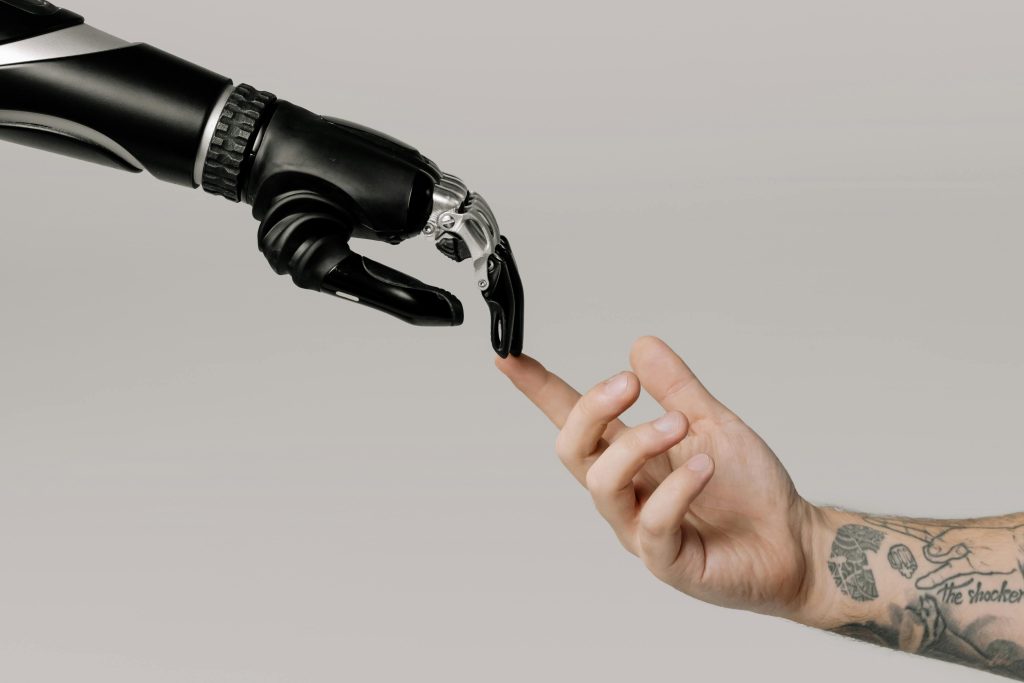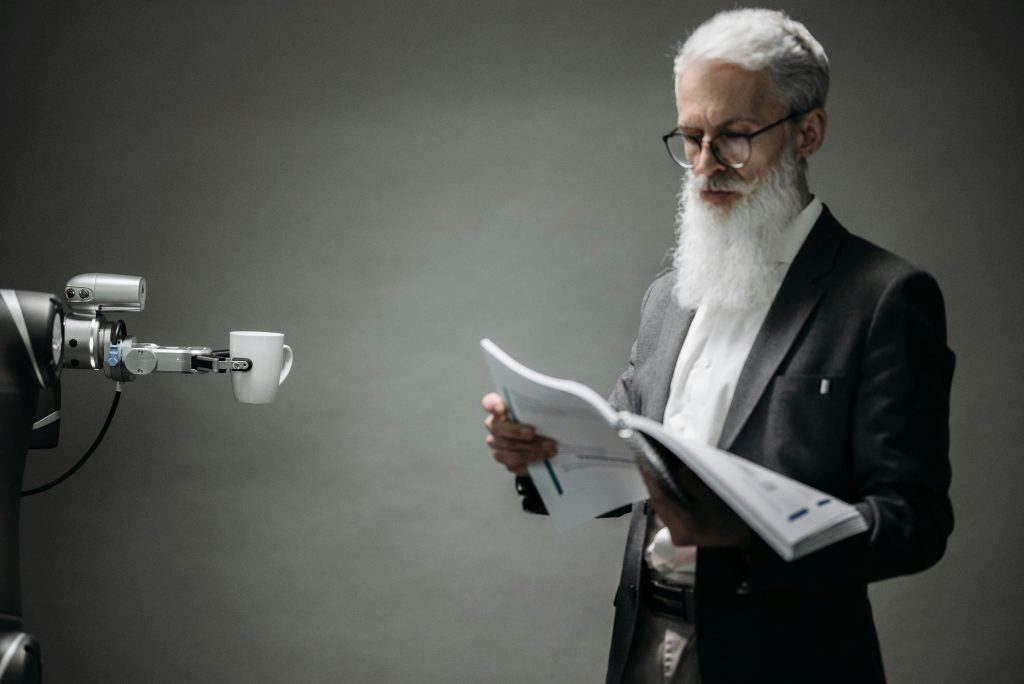Introduction
Artificial Intelligence (AI) is no longer just the subject of sci-fi films or cutting-edge tech labs—it’s a daily reality that’s transforming how we live, work, connect, and make decisions. In 2025, AI has become seamlessly woven into everyday life, from personalised healthcare to smart homes, ethical automation, and creative co-pilots.
At evolvia.com.au, we explore the intersection of technology and human progress. And right now, few technologies are accelerating change as rapidly—or as profoundly—as AI.

In this article, we dive into how AI is changing the way we live in 2025, with real-world examples, societal insights, and what the future holds for individuals, businesses, and communities.
1. Smart Homes Are Smarter Than Ever
From Convenience to True Intelligence
AI-powered smart homes have moved beyond voice assistants and automated lighting—they now learn and adapt to our behaviour.
Examples of AI in smart living:
- Smart thermostats predict and adjust temperatures based on your routine
- Fridges track inventory and suggest recipes based on what you have
- Security systems use facial recognition to differentiate between family and strangers
- Voice assistants understand nuanced commands and anticipate needs (e.g., “I’m heading out” triggers locks, lights, and alarm)
Evolvia Insight: AI makes homes more energy-efficient, secure, and personalised than ever before.
2. AI in Healthcare Is Saving Lives—Proactively
From Treatment to Prediction and Prevention
In 2025, AI plays a central role in diagnosing conditions early, personalising treatment plans, and monitoring patient health in real time.
Transformational uses:
- AI-driven imaging tools detect cancers and diseases with unmatched precision
- Wearable devices track heart rate, oxygen levels, and sleep—sending alerts if anomalies arise
- Chatbots and virtual nurses triage symptoms, saving time and reducing healthcare strain
- AI predicts outbreaks or individual risk factors using large-scale health data
Pro Tip: Many Australians now benefit from AI-assisted GP consultations and faster diagnoses through Medicare-supported telehealth platforms.
3. AI Is Redefining the Workplace
Automation That Augments, Not Replaces
While automation has impacted some roles, in 2025 AI is largely augmenting human work—helping people become more productive, creative, and strategic.

In today’s workplaces:
- AI tools summarise meetings, generate reports, and manage schedules
- Marketing teams use AI to write ad copy, segment audiences, and predict campaign performance
- Developers use code assistants like GitHub Copilot for faster, cleaner coding
- Recruitment software screens CVs for bias-free shortlists and skill-matching
Evolvia Forecast: Roles like “AI Workflow Architect” and “Prompt Engineer” have emerged as new career paths.
4. Everyday Transportation Is Safer and Smarter
AI Is Driving the Future—Literally
From route optimisation to autonomous driving, AI is revolutionising how we move around cities and across countries.
Examples in 2025:
- Ride-share services use AI to reduce wait times and match drivers efficiently
- Autonomous shuttles operate in select urban areas and university campuses
- Cars adjust driving patterns based on weather, traffic, and pedestrian activity
- AI-driven traffic systems reduce congestion and carbon emissions
Did you know? Sydney’s public transport integrates AI to optimise timetables based on real-time commuter data.
5. AI Is Transforming Personal Finance and Spending
Smarter Money, Less Stress
Personal finance apps powered by AI help Australians better manage, save, and grow their money in 2025.
AI-powered finance tools now:
- Track spending patterns and suggest savings goals
- Automate budgeting across categories based on habits
- Offer real-time investment advice tailored to your risk profile
- Detect fraud by analysing irregular transaction patterns instantly
Centy Integration: Many users now connect their bank to AI money coaches that alert them to overspending before it happens.
6. AI Enhances Education and Personal Learning
Customised Learning Paths for Every Student
In classrooms and online, AI helps tailor learning to each student’s pace, style, and needs.

In 2025 education:
- AI tutors provide instant feedback on assignments and suggest resources
- Learning apps adapt based on performance and engagement
- Virtual classrooms use AI avatars for live support
- Educators track student progress through predictive analytics
Evolvia Highlight: Australian universities now use AI tools to reduce dropout rates and improve student wellbeing.
7. Creativity Gets a Boost with AI Co-Creation
AI Is the New Creative Partner
AI is no longer just analytical—it’s helping co-create in art, music, design, and writing.
Creative applications:
- AI tools like ChatGPT and DALL·E assist in drafting content or visual art
- Musicians generate loops and beats using AI-enhanced software
- Architects use AI to test design ideas instantly
- Content creators brainstorm with AI-powered idea generators
Important Note: In 2025, ethical AI use in creative industries is a hot topic—especially around authorship and originality.
8. AI and Ethics: Balancing Innovation with Responsibility
The More Powerful the Tool, the Greater the Duty
With AI’s increasing influence, 2025 also brings more attention to ethical considerations.
Key ethical challenges:
- Data privacy and consent
- Algorithmic bias and discrimination
- Deepfake detection and regulation
- Transparency in AI decision-making
Australia’s role: The country is taking steps toward robust AI governance, including AI transparency standards and ethical AI certifications for developers.
9. AI in Daily Shopping and E-Commerce
Personalisation at Scale
AI tailors every aspect of the shopping experience, from product discovery to after-sale support.

In 2025, shoppers experience:
- AI-curated product suggestions based on style, price range, and past purchases
- Virtual try-on experiences for clothing and cosmetics
- Chatbots that handle returns, exchanges, and live support
- Predictive reordering for frequently used items (e.g., groceries, toiletries)
Evolvia Insight: AI is helping Aussie retailers compete globally by delivering smarter, faster, and more personal customer journeys.
Conclusion
In 2025, AI is not a distant concept—it’s embedded in nearly every part of daily life. From making homes smarter and healthcare more proactive to revolutionising work and learning, AI is helping us live more efficiently, intelligently, and (ideally) ethically.
At evolvia.com.au, we’re committed to helping Australians navigate this rapidly evolving tech landscape with clarity, insight, and responsible innovation.
Want to learn how to integrate AI into your business, lifestyle, or workflow? Explore our AI trends hub or subscribe for the latest tech updates.


